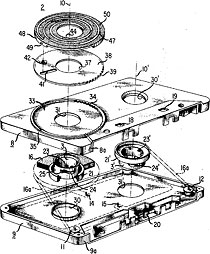John Wiggins
By Don Campau | 27 October 2011
I honestly don’t know who the first cassette trade was with – I definitely made cassettes to BE IN the electronic music cassette trading world but it may have been with some Serge guys and then David Vosh – everyone wrote back and talked about the music – it was a very cool time and my cassette “Anagenic” won Cassette Of The Year 1984 in POLYPHONY Magazine – so I was totally into it trying to make “new music”.



